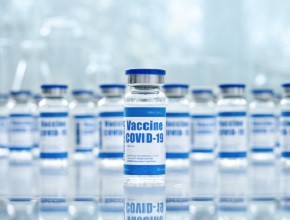Polypill +/- aspirin in individuals without cardiovascular disease
A polypill combining a thiazide diuretic, beta-blocker, angiotensin converting enzyme inhibitor, and statin into a single pill along with aspirin is proposed as a simple, inexpensive preventive intervention to reduce the incidence of cardiovascular events in at-risk people.
The TIPS-3 (The International Polycap Study 3) trial used a 2-by-2-by-2 factorial design. Men aged ≥50 years and women aged ≥55 years without cardiovascular disease but considered at intermediate or high cardiovascular risk were randomly allocated to receive one of the following:
- A polypill consisting of hydrochlorothiazide 25 mg, ramipril 10 mg, atenolol 100 mg, and simvastatin 40 mg (or matching placebo).
- Aspirin 75 mg (or matching placebo).
- The polypill and aspirin (or matching double placebo).
The primary outcome for the polypill and the polypill plus aspirin comparisons was a composite of cardiovascular death, myocardial infarction, stroke, resuscitated cardiac arrest, heart failure, or revascularization. For the aspirin-alone comparison, the primary outcome was a composite of cardiovascular death, myocardial infarction, or stroke. Safety outcomes were also assessed.
In total 5713 participants were randomized and underwent follow-up for a mean of 4.6 years. The primary outcome for the polypill versus placebo comparison occurred in 126 (4.4%) participants in the polypill group and in 157 (5.5%) in the placebo group (hazard ratio [HR], 0.79; 95% CI, 0.63-1.00). The primary outcome for the aspirin versus placebo comparison occurred in 116 (4.1%) participants in the aspirin group and in 134 (4.7%) in the placebo group (HR, 0.86; 95% CI, 0.67-1.10). The primary outcome for the polypill-aspirin versus double-placebo group comparison occurred in 59 (4.1%) participants in the polypill-aspirin group and in 83 (5.8%) in the double-placebo group (HR, 0.69; CI, 0.50-0.97).
In participants who received the polypill or the polypill and aspirin, the low-density lipoprotein cholesterol level was reduced by ~19 mg/dL and systolic blood pressure was reduced by ~5.8 mm Hg. There was a higher incidence of discontinuation of the trial regimen because of hypotension or dizziness in the polypill group than in the placebo group (2.7% vs 1.1%). Permanent discontinuation of the study drug because of adverse effects occurred in 5.4% in the polypill group and 3.9% in the placebo group.
The authors concluded that the polypill plus aspirin led to a lower incidence of cardiovascular events than placebo among people at risk for cardiovascular disease.
McMaster editors’ comment: The polypill combined low-cost medications and may have clinical applications in people or populations where drug costs and compliance are major factors in determining treatment feasibility and effectiveness. Additional studies may consider a comparison of a polypill with lifestyle intervention for the primary prevention of cardiovascular disease.
 English
English
 Español
Español
 українська
українська











